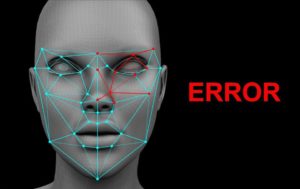The United States has been under the jackboot of the surveillance state for quite some time; but recent events have brought about some reprieve in the facial recognition.
June 15, 2020
So many issues are seen in a vacuum, but the fact is, surveillance is as much part of the police state reality in many countries as routine detentions.
You have the petty infractions on the one hand which are the excuse police use to interfere in the lives of people. Petty routine infractions have lead to more asset forfeiture than large scale investigations.
But then you also have surveillance. Flawed as it is, it casts another net over the innocent and builds a criminal narrative that can create more victims than save or avenge them.
IBM, Microsoft, and Amazon are putting various restrictions on their data and recognition tools, specifically against police access to them.
Launched in 2016, Amazon’s Rekognition software is part of the company’s cloud computing division, Amazon Web Services (AWS). On its company’s website, Amazon claims that its facial recognition “provides highly accurate facial analysis and facial search capabilities that you can use to detect, analyze, and compare faces for a wide variety of user verification, people counting, and public safety use cases.” Since its debut, the company has tried to push the technology to a whole host of law enforcement entities; it has been tested by police departments in Oregon and Orlando, Florida.
They’ve since done an about face on this, putting a one-year moratorium on extending their Rekognition software to police, advocating for congress to implement stronger regulations for the ethical use of this technology. The hope is that will provide the time Congress needs to put proper restrictions on the use of their technology.
Don’t confuse this with the partnership Amazon Ring has with police. That is still intact.
IBM
IBM is getting out of the facial recognition game altogether. IBM CEO, Arvind Krishna wrote in his letter to Congress:
“IBM firmly opposes and will not condone uses of any [facial recognition] technology, including facial recognition technology offered by other vendors, for mass surveillance, racial profiling, violations of basic human rights and freedoms, or any purpose which is not consistent with our values and Principles of Trust and Transparency. We believe now is the time to begin a national dialogue on whether and how facial recognition technology should be employed by domestic law enforcement agencies.”
Microsoft is waiting for legislation to be in place before even getting into the facial recognition space.
It is nice to know that in 2018, Apple decided against giving the police and FBI backdoor access to people’s phones. Even when it came to helping solve a murder case, they stood by the fact that giving law enforcement authorities access to this data compromised every user, and they could not accommodate on those grounds.
I realize how expedient it is to ride roughshod on people’s rights, but the problems need to be solved in a way that respects the rights of uninvolved parties.
If the Merchant of Venice taught us nothing, you can only take a pound of flesh… no more, no less. And until you can solve for that, you get nothing.
They always trot out the very worst case scenarios to sell in these types of surveillance programs. Solving a murder case where the boyfriend with a history of domestic violence is a primary suspect, is a perfect example where a warrant for his phone information makes sense. But if it cannot be done without compromising everyone else’s privacy, then it gets sticky.
Still with tech giants backing away from the surveillance technology, that does leave a place for smaller opportunists to fill that space. It’s certainly possible that some no-name underdog steps up, but even more certain that the momentum of civil rights groups will steamroll them moments after they poke their heads out.
I’m thrilled the overreach of the police state in general has come to the forefront of public discussion. There are groups of people who justify all these intrusions into privacy as much as they justify police brutality and military interventions. There’s always something that makes it all okay in their eyes.
Then there’s everyone else who is either disturbed or outright upset with it. It’s mainly been groups like Black Lives Matter who have been driving the movement against police brutality. I don’t deny that other races get pummeled by police, but they don’t protest it. The awareness of police authoritarianism and militarization has been largely ignored.
If BLM manages to get the state to back off, shrink the police state, or at the very least hold it more accountable, then while Black Lives Matter, all lives are better served.
I don’t care how this gets solved. I don’t care who solves it. All I’m saying is: tech giants are taking heed in light of recent events, and that’s something to applaud.


